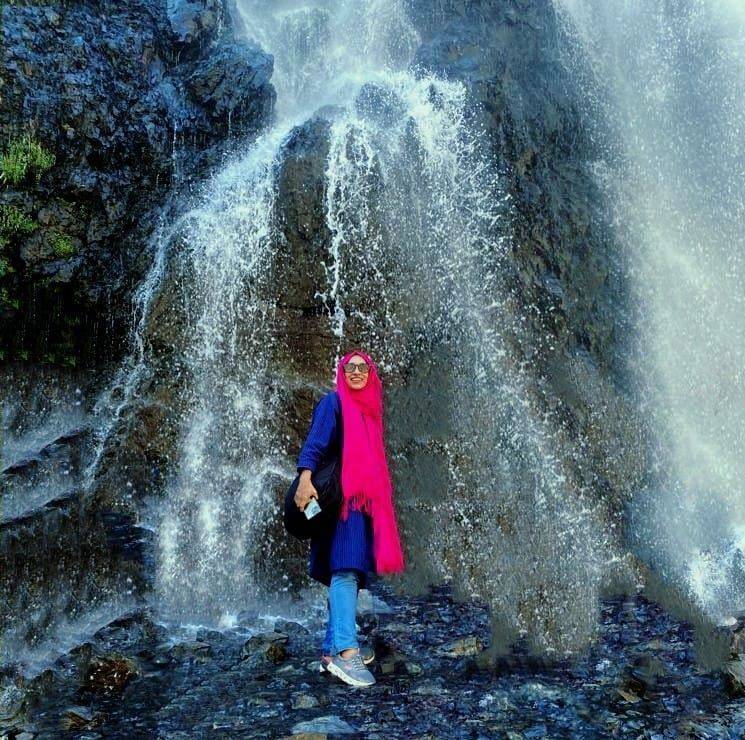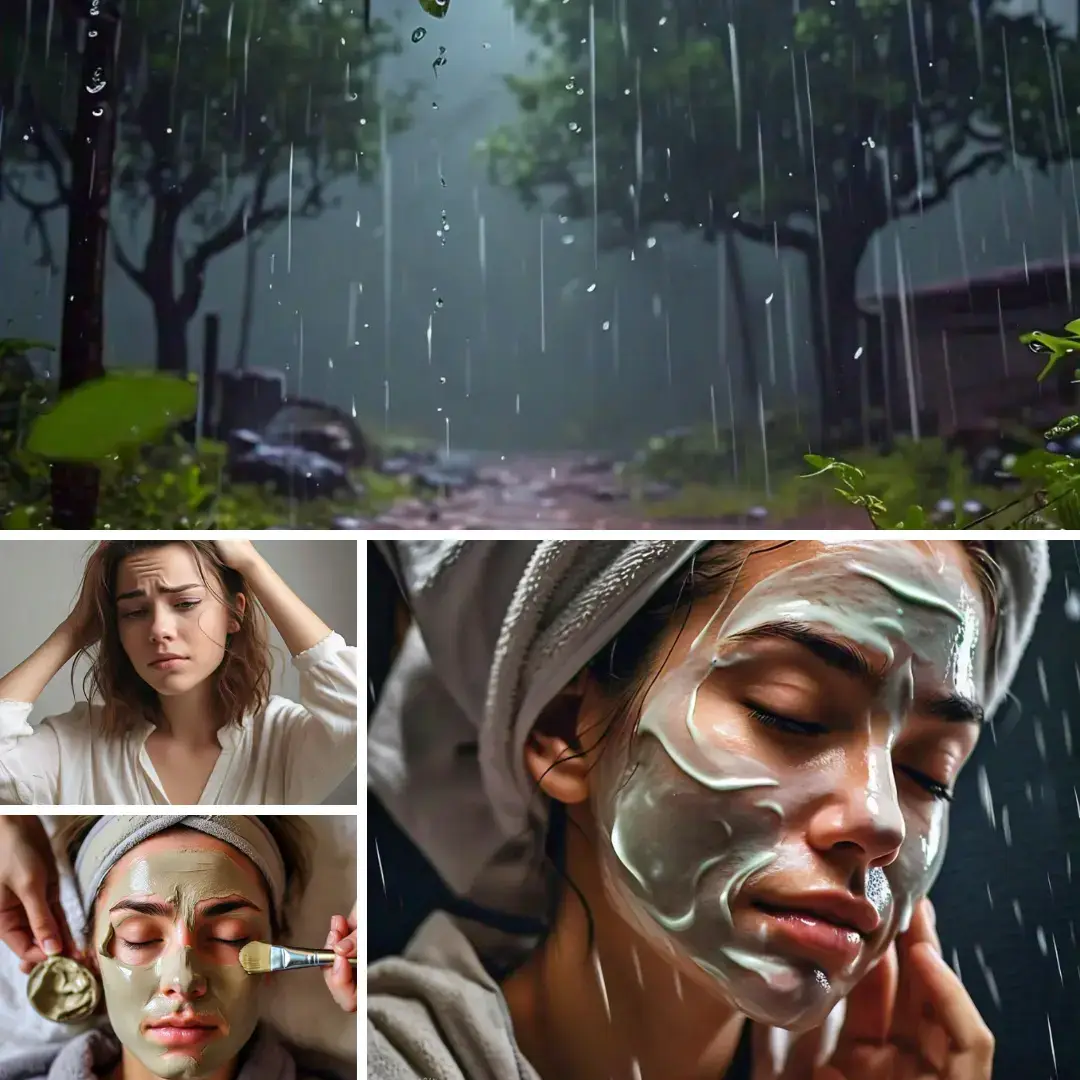Monsoon means monsoon-related skin problems: excessive oiliness, sweating, acne, oily itchy scalp, and hair fall. So let’s go over monsoon-related skin care and hair care tips. You can make small changes in your current skincare routine so you can enjoy the monsoon season without going through the crazy impacts this season brings.
Here are the top 10 skincare and haircare tips to follow in Monsoon.
Double your exfoliation
If you have oily or dry skin that has become oily due to this weather, you should exfoliate it.
Typically, experts advise using an exfoliant twice a week based on skin type, but during the monsoon season, we should intensify our exfoliation routine by performing it three times a week.
So if you’re someone who struggles with excessive oily skin and large open pores, exfoliate with salicylic acid three times a week and try layering it up with niacinamide.
If you have normal to dry skin that is turning into a combination, or if your t zone is secreting more oils, consider using glycolic acid, lactic acid, or mandelic acid.
Use any one of three and double up on exfoliation.
Important:
When using retinols, one must exercise caution due to the increased frequency of exfoliation.
If you were previously using retinol three times a week, exfoliating twice a week, and taking two days off from any actives, your regimen should now be retinol twice a week, exfoliation three times a week, and rest days twice a week.
1.Use high-strength niacinamide:
If you have extremely oily skin or if your sebaceous glands begin to secrete oil 5 minutes after applying sunblock, now is a good time to introduce high-strength niacinamide.
You should use 5 percent niacinamide daily, 10 percent if you have oily skin, and 12 percent niacinamide three to four times a week if your complexion is extremely oily.
Naturium and L’Oreal Paris offer 12 percent niacinamide.
However, using 20 percent niacinamide is not recommended as it irritates the skin.
2. Start using an exfoliating cleanser.
Experts typically recommend exfoliating cleansers for skin prone to acne. Therefore, if your skin is susceptible to acne, we recommend using a salicylic acid cleanser.
If you don’t have acne or any other skin issues during the monsoon season, but your skin is sweating excessively and appearing dull, exfoliating your face once a day at night can be beneficial.
For non-acne skin, use gentle exfoliating cleansers with lactic acid, such as Simple Brand.
Now you don’t have to use it day and night all 7 days a week; start with 3 to 4 times at night only and observe how your skin reacts. If your skin oil balance is under control, then keep using it 3 to 4 times a week. If your skin is still oily, you may want to increase its frequency, but don’t use it morning and evening, or your skin will get very dry and irritated.
Exfoliating body washes with AHA and BHA can be life-changing. They might not help much in reducing body acne, but they work excellently for gentle exfoliation of skin, tan removal, and sweating control.
3.Minimal layering
Don’t put too many products on your skin, especially in your morning routine, or it will trigger more oil secretions and sweat. The less product you’ll have on your skin, the less you’ll sweat, and the better you’ll feel, so limit it to one serum (according to your skin type/needs) with sunscreen in the morning.
4. Smoothing watery toners
If you are someone with hypersensitive skin, hot and humid weather can be quite a challenge to deal with. You might develop some kind of sensitivity, so opt in for soothing watery toners; something with soothing ingredients like cica and Centella asiatica will be a lifesaver for your skin.
Korean brands have come up with soothing toners: Anua Heart Leaf Toner, Centella Toner by Skin1004, and Heartleaf Toner Pad by Goodal. They absorb effortlessly without leaving a layer on the skin, effectively calming and soothing skin that is sensitive to heat.
5. Use a clay mask
Use it only on areas you know are very oily, such as your t-zone or cheeks adjacent to the nose. Apply it when doing skincare before your makeup. Split up your face and give it what it needs according to its behavior. There is no need to apply a clay mask all over the face.
6.Skip your moisturizer or go for a water gel
You don’t need to use moisturizer in your morning routine; just use sunscreen. Most often, sunscreens do carry hydrating ingredients like aqua, glycerin, squalene, and hyaluronic acid along with UV filters. So skipping moisturizer won’t harm your skin.
If you feel like sunscreen makes you sweat profusely and you’ll end up removing all your sunscreen, then opt in for gel-based water-resistant sunscreen and skip moisturizer.
7.Switch to powder foundation:
If you go out every morning and have to do makeup, then choose powder foundation over liquid foundation. In monsoon, with so much humidity, powder foundation is a life-changing experience because when you top your sunscreen with powder foundation, it gives a smooth finish and doesn’t cause piling.
8.Scalp exfoliation
Have you ever wondered why there is a massive hair fall during the monsoon season? Hair fall itself might be due to many reasons; it could be due to low vitamin D, iron deficiency, or general bad health, but one more reason for a hair fall is gunk and buildup of hair products that aren’t washed away with shampoo.
Scalp exfoliation is helpful. In this case,. The Inkey List scalp exfoliator is available in two variations. Salicylic acid and glycolic acid are worth mentioning; they gently remove all the gunk and buildup that might be otherwise harmful for your scalp. All you need to do is apply it once a week for 10 minutes before hair washing, and then carry on with your regular bath routine.
9. Use sheet masks
When we are profusely sweating, our skin gets dehydrated, so monsoon is the best time to apply sheet masks. You can use them daily or on alternate days. Just double cleanse your face in the evening, apply hydrating toner, and put on a sheet mask for 10 to 15 minutes, and then carry on with your moisturizer. Sheet masks will help soothe and calm your skin.
10: Water-based diet
We must focus on keeping ourselves hydrated, not just by drinking more water, but also by consuming water-based diets. This is a diet based on high-fiber fruits and vegetables.
I’m sure you must’ve heard that each season brings its own seasonal fruits and vegetables, and they’re there for a reason, so it’s important to consume them because they grow during a particular season when your body is in need of specific nutrients.
I hope you’ve learned something new today. Now keep these pointers in mind when designing your skincare routine for Monday.
FAQS
Monsoons are all about hot and humid weather, which causes our skin glands to produce excessive oil, causing acne
Use oil-free products such as moisturizer and sunscreen, along with a gentle exfoliating cleanser.
Use oil-free gel-based moisturizers at night. You can replace moisturizers with sunscreen during the day.
: Introduce exfoliating cleanser into your routine, use non-comodogenic products, and don’t skip sunblock
Not necessary, but they help with excessively oily skin.
Yes, whatever the season, sunscreen is a must. Opt in for water-resistant and gel-based sunscreen.

I am a dentist, baker, and fitness and health enthusiast with a passion for living life to the fullest. I am foodie and explorer, always seeking new adventures and flavors. Currently working on my own skincare brand.



2 Comments
[…] more tips on maintaining healthy, glowing skin, check out our articles on Monsoon Skin and Hair Care Routines and You can also explore a full collection of skincare articles […]
[…] more tips on maintaining healthy, glowing skin, check out our articles on Monsoon Skin and Hair Care Routines and You can also explore a full collection of skincare articles […]